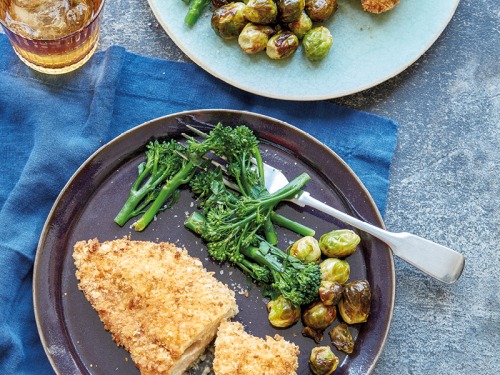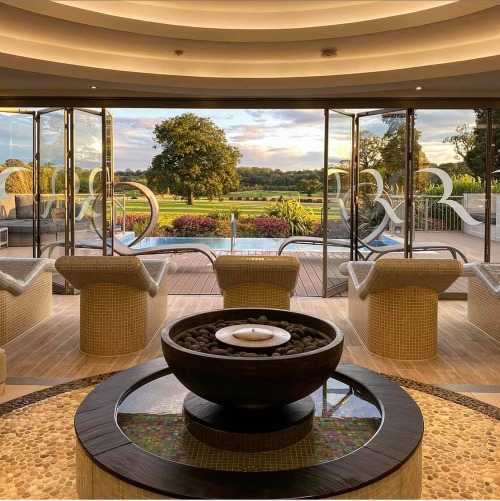Meet Newcastle-born Author Emma Flint Ahead of Her Talk at Whitley Bay's Bay Tales

Bay Tales Live is back (1st-3rd March) at Whitley Bay Playhouse and venues nearby
Tell us a bit about yourself and your background.
I was born in Newcastle, grew up there, went to school there and lived there ’til I was 18. Then I went off to university in Scotland, and lived in Edinburgh for a few years afterwards having got my first job there. Then I moved down to London and lived there for around 25 years. I worked in IT for most of my career and I’ve always written. In my 30s I thought if I don’t do something about it now, I never will, so I did a writing course, joined a writing group, met other writers and started taking it a lot more seriously, and that’s when I started to write Little Deaths which came out in 2017. Then I started my next one Other Women, which came out in February last year.
Tell us about your two books and the inspiration for them.
They’re both based on true crimes. Other Women is about a love triangle that ends in murder and it’s set in 1920s London. It’s narrated by the wife and the lover, Kate and Beatrice; the man who links them doesn’t have a voice in the novel. It’s about fantasy, obsession, shame and ultimately I think it’s about the things we’re prepared to do to protect what we love. Little Deaths is a very different book. It’s set in Queens, New York in the 1960s – different period, different location and very different characters. It’s also inspired by a real crime. The basic premise is one July morning a single mother woke up to her four-year-old daughter and her five-year-old son missing from their locked bedroom. Both children were later found dead. The thing that interested me about that case was the woman at the centre of it (the mother) was named by the police as the main suspect in the murders before the police even had confirmation that her children were dead. I really started writing out of fascination about what kind of woman that could happen to, what kind of woman she was, and what it felt like to be her. It felt like she was judged very much on how she looked, how she talked, her job and being a single mother.
Read More: Five Reasons to Visit Living North LIVE in York and Newcastle this Year

Why do you base your books on true crimes?
I’ve always been interested in history. I think it’s really hard growing up in the North East not to be because we’ve got such an amazing, rich history around us. I’ve always read crime novels. I remember my mum giving me an Agatha Christie book when I was about 10. Lots of crime novels are based on real crimes. A lot of Agatha Christie’s were, it’s just that she didn’t give interviews the way that authors do now so people might not be aware of that. The thing I find really fascinating about true crime and social history is the kind of detail you get. With Little Deaths, when the children were found missing, their mother was interviewed by the police and she said she’d fed them veal for dinner but when the bodies were found and they did autopsies, they didn’t find veal, they found pasta in their stomachs. That’s not a detail I think any crime writer would’ve made up. That’s really what triggered my interest because I thought why would she lie about something so seemingly irrelevant – it doesn’t give her an alibi, it just seemed like a really bizarre thing to say. I’ve always been interested in true crime because I think fact is sometimes more interesting and stranger (and sometimes more unbelievable) than fiction. In Other Women, the second half of the novel takes place over a murder trial and the person on trial was arrested walking through Waterloo Station with a bag with a blood-stained knife, a blood-stained shawl and blood-stained underwear. If you opened a crime novel like that people would say that’s too melodramatic but that is actually what happened. There’s a lot of drama, intrigue and mystery in the real details of real crime.
Read More: How the Northumberland Open 2024 is Celebrating the 90th Anniversary of the Ashington Group
What challenges do you face in writing such stories?
There are probably two main ones. Sometimes the details don’t add up. My job is to tell the story and entertain, I’m not a historian and I’m not writing a factual account of the crime and sometimes you get details that don’t quite fit into the story. For example, in Little Deaths the mother was arrested three times and there were three trials and for my first couple of drafts of the novel I wrote three trials but ended up cutting it down to one. The other thing that I think is more of an issue, for me anyway, is the responsibility you feel. You know that real people were involved, people were hurt by it and people are potentially still grieving. I’m very aware when I’m writing that there might still be family members alive and certainly with Little Deaths I know the woman at the heart of it, who I call Ruth Malone, was still alive at the time that the book came out, and I was very conscious of that. There would be people who played with those kids when they were young. I always think, how would I feel if I read this book and this was my family? If a member of the family wanted to speak to me would I be able to justify what I’ve written? You do have a responsibility when you’re using someone’s story to be accurate, maybe not in every single detail, but in the sense of what you’re telling. At the end of both books I tell people about the real story and where they can read more about it. Little Deaths was published in America and I had lots of emails, letters and Tweets saying they remembered the case really well.
How have readers reacted to your books?
The reactions have been astonishing. Nobody sits down to write their first book and thinks it’s going to be successful, I don’t think. All I ever wanted when I started writing was for someone I didn’t know to be moved by it. To have the success I’ve had is mind-blowing, honestly. It’s been incredible. There are loads of things that stand out but I remember my agent phoning me to tell me I’d been long listed for the The Baileys Women's Prize for Fiction and I was so flabbergasted I couldn’t stand up. I’ve had amazing reviews from papers and magazines but also from other writers – they’ve been incredibly supportive. Writers who I’ve read for years; I met Val McDermid in Newcastle and she said ‘I loved Little Deaths’ and I thought ‘I’ve been reading your stuff for decades, that’s amazing!’
Read More: LJ Ross Bookclub: A Heartfelt Comedy For February
What can we expect from you at Bay Tales Live on 2nd March?
I’m coming to Bay Tales at the invitation of Ann Cleeves, who has been incredibly supportive. She’s another writer I’ve read for years and all of a sudden she was reviewing and talking about my book. She invited me to Alnwick last year around the time the book was published and I interviewed her on stage at The Alnwick Playhouse [as part of Alnwick Story Fest] and she was really championing the book. She was just amazing, and to be up on stage with someone like that is phenomenal. At Bay Tales, I’ll again be on stage with Ann talking about both books, the inspiration behind them, what I’m working on next, why I write and the kind of things I like reading – and hopefully meeting lots of readers! That’s the nice thing about these events, especially in the North East where people are so friendly and I feel like I’m coming home.
What are you reading right now?
Right now I’m reading some factual stuff for my next book, because I do lots of research. But I’ve also been re-reading Jane Casey’s Maeve Kerrigan novels because her new one is out in March. Over Christmas I read some Hilary Mantel and Rose Tremain who are my two favourite historical novelists. I also read the latest Megan Abbott book and a debut novel by a writer called Katy Massey which isn’t about the Yorkshire Ripper but it’s set around the case, so she’s using real crime as a setting rather than a subject matter I would say. To be honest I really needed a break over Christmas so I read lots of Agatha Christie which I still read to switch off.
‘That’s the nice thing about these events, especially
in the North East where people are so friendly
and I feel like I’m coming home’
A North East author you love?
For fiction Ann Cleeves and for non-fiction Gordon Burn – he wrote what I think was one of the definitive books about Peter Sutcliffe. He was an incredible writer.
Your favourite place to visit in the North East?
I really love Tynemouth Castle. Last time I was up I went to Tynemouth, Warkworth and Wallington with my parents. I remember walking around Warkworth and thinking I really want to write a series of medieval crime novels set in this castle. We have such amazing, dramatic, fantastic, awe-inspiring scenery. I really want to write a series set here.
What’s next for you?
After Bay Tales, I’m doing an event at an independent bookshop in Durham the following week, I’m going to be teaching a couple of creative writing classes, but for the for rest of this year I’ll be getting my head down and working on book three which is also based on a real case, this time set in the 19th century.











